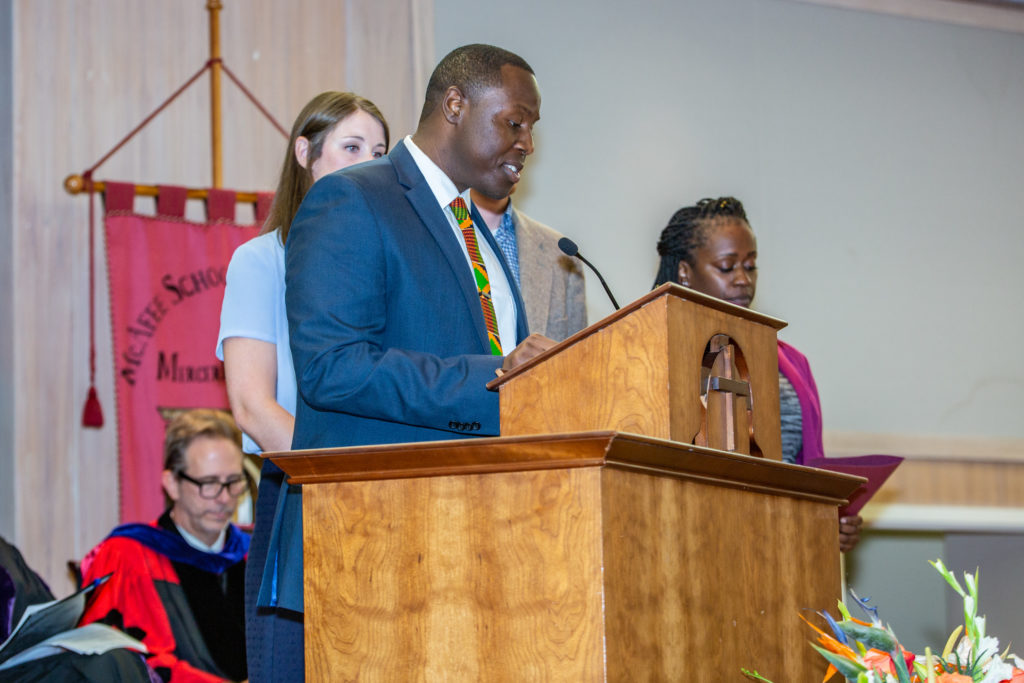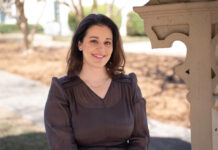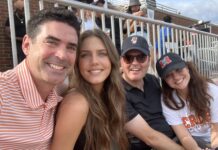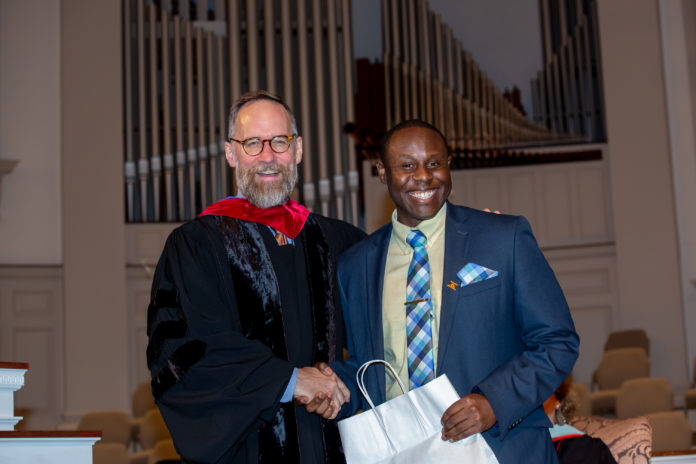
Mercer University alumnus Jukabiea Barlow took a leap of faith when he applied to be a prison chaplain and discovered a passion. For a year and seven months now, the 2019 McAfee School of Theology graduate has been ministering to inmates — including those on death row — at the Federal Bureau of Prisons complex in Terre Haute, Indiana.
Barlow earned his bachelor’s degree in music with a concentration in jazz studies and served in the Army as a musician for 4 1/2 years before beginning his theological studies. While he worked toward his Master of Divinity degree, he was both a chaplain in the Army Reserves and an executive pastor in Peachtree City.
Prison ministry work wasn’t on his radar, but as he looked for full-time positions after graduation, his mother-in-law randomly sent him a listing for a chaplain job with the Federal Bureau of Prisons. Barlow said he didn’t think he’d qualify, but he applied anyway. He didn’t get that particular job but applied for similar ones around the country and was hired in Indiana.
“Mercer provided a strong foundation for what I’m doing, and I’m thankful for that,” he said.
Barlow is one of five chaplains who work at the men’s prison complex, which consists of a maximum-level penitentiary, a medium-level federal correctional institute and a low-security facility. It houses about 2,500 inmates total and is the only federal prison that carries out executions.
“I am a religious advocate for inmates of all faiths and traditions,” he said. “I try to provide spiritual and religious resources to inmates, so they can strengthen their faith amid their time behind bars.”
Barlow visits all three facilities as well as the prison hospital. He is responsible for leading Protestant chapel services, which are a communal style that encourages dialogue from the men rather than just preaching to them.
The attendees pray and sing and have Holy Communion every Sunday. Instruments and equipment are limited, but Barlow often plays piano during the services, or inmates may play guitar and share songs they have written.
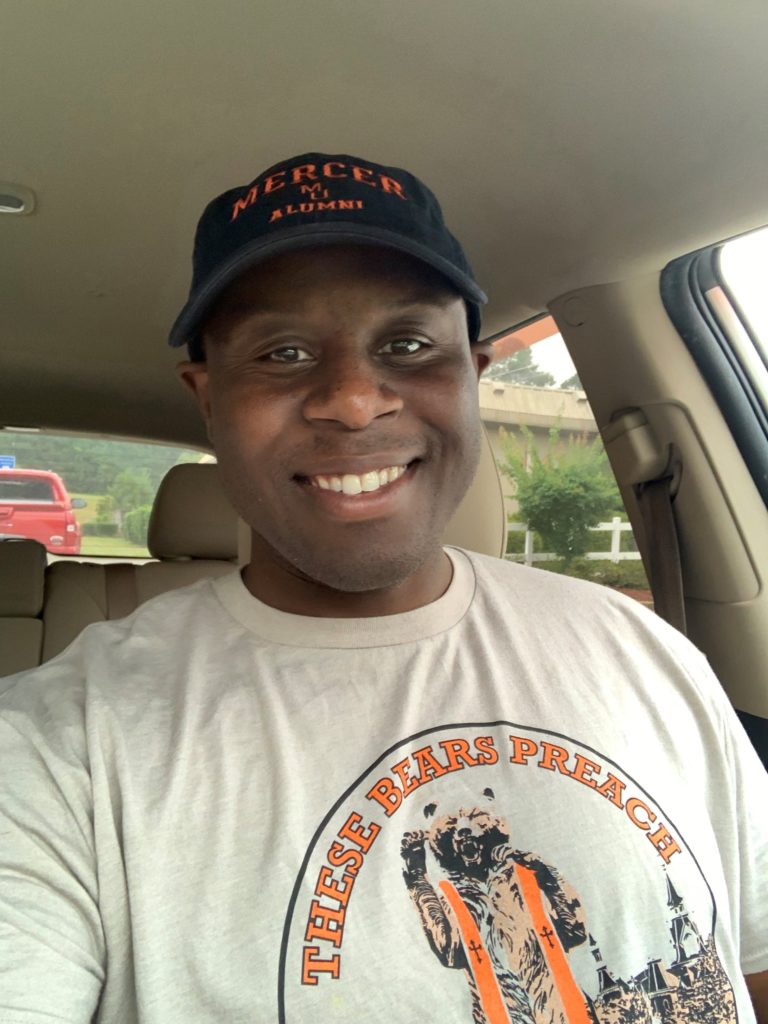
He also spends lunchtime with the men in case they want to talk; provides resources or a listening ear to those who request it; and goes door-to-door every Friday to visit with every inmate who is interested.
“The most rewarding thing about the job is seeing an inmate go home, especially if I’ve had the opportunity to speak to them and have those conversations. They take some of the things that we’ve discussed together and implement them in their lives,” Barlow said.
“In the prison environment, you take those small victories to heart because you’re surrounded by so much negativity. It can mean the world for an inmate to turn around drug activity. It can mean the world for an inmate to solve anger issues. Whatever their spiritual path, it doesn’t matter to me. What matters to me is it helps them to become a better person.”
Barlow said it’s been a learning experience as he walks with the men through their personal journeys. Some of them will never get out of prison, requiring a change in mindset and language that Barlow said he may never get used to. He has to adapt his ministry from focusing on second chances to what can be done for life betterment while behind bars.
The concepts of forgiveness and reconciliation are challenging, especially among death row inmates. The church teaches that people should go to those they have wronged to right the situation, but that’s not always possible for these men.
“In death row, a lot of times you eliminate that opportunity because what has been done is so egregious that victims don’t want contact,” Barlow said. “A lot of inmates deal with the guilt of not being able to reconcile and ask forgiveness for that particular thing that brought them to death row. That is a difficult thing from a chaplain perspective.”
There are tough days on the job, and Barlow and his wife purposefully chose to live about an hour away in Indianapolis, so he’d have a barrier between home and work. He uses his commute for prayer and reflection, taking time to celebrate the triumphs and decompress from the struggles.
But despite the challenges, Barlow is right where he wants to be.
“As a chaplain, I don’t feel like I go to work every day. I feel like I get the opportunity to do a passion that is just so fulfilling, not just for me but the people I get to interact with on a day-to-day basis,” he said.
Prison ministry work is extremely important yet often overlooked, and there’s a huge need for chaplains to take on those roles, Barlow said.
“Men and women who are in prison, society tends to cast them off and forget them. They have families that are still grieving the fact that a loved one has been separated from them. We are called to minister, to love the children of God. Some of the people of God have done bad things, but they’re still people, and they’re still children of God.”
The McAfee School of Theology at was founded 25 years ago on Mercer’s Atlanta campus. The Den will be sharing alumni profiles throughout the year to mark this milestone anniversary.
